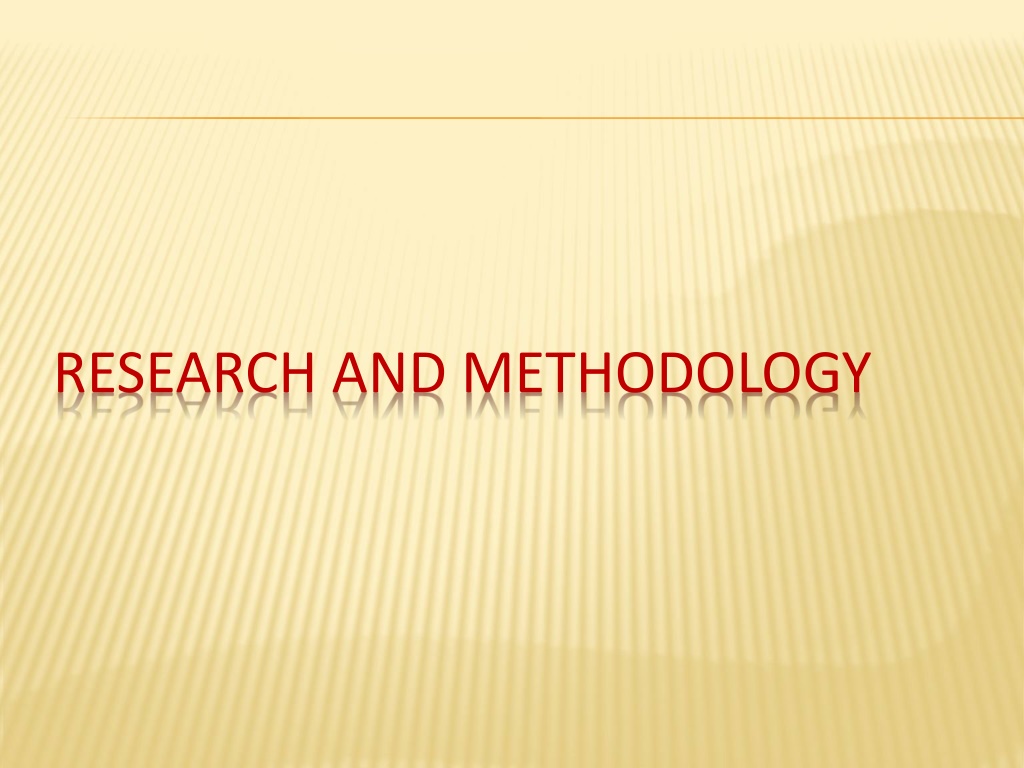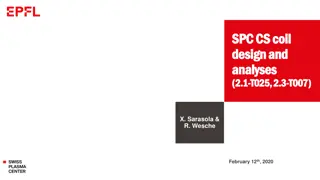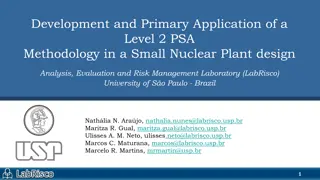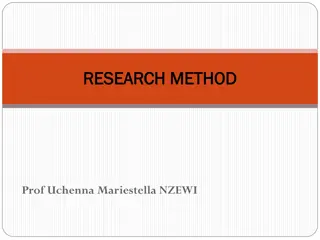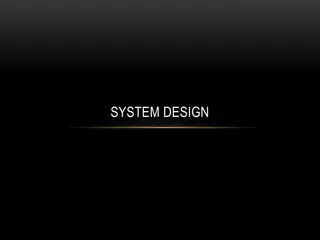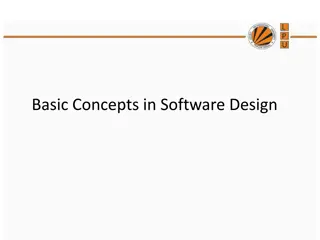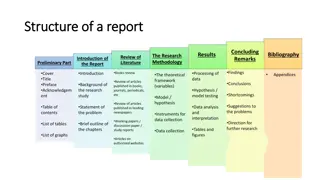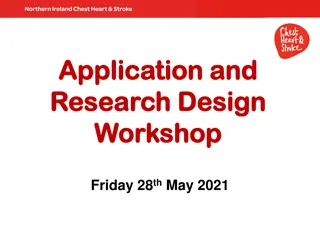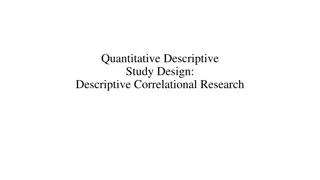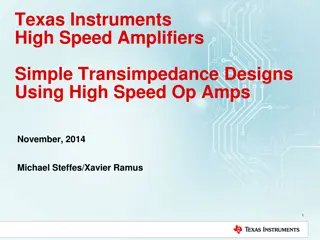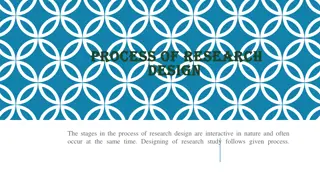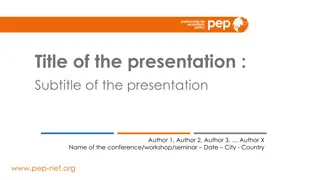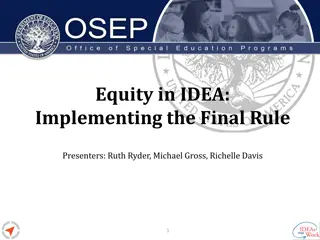Understanding Research Design and Methodology
Research design is crucial in organizing data collection and analysis to align with research goals efficiently. Concepts like dependent/independent variables, control, and experimental units play key roles in designing and conducting research studies, aiming to minimize extraneous influences and ensure accurate hypothesis testing.
Download Presentation

Please find below an Image/Link to download the presentation.
The content on the website is provided AS IS for your information and personal use only. It may not be sold, licensed, or shared on other websites without obtaining consent from the author. Download presentation by click this link. If you encounter any issues during the download, it is possible that the publisher has removed the file from their server.
E N D
Presentation Transcript
MEANING A Research design is the arrangement of condition for collection and analysis of data in a manner that aims to combine relevance to the research purpose with economy in Procedure.
IMPORTANCE CONCEPTS RELATING TO RESEARCH DESIGN Dependent and independent variables A concept which can take on different quantitative values is called a variable. As such the concepts like weight, height, income are all examples of variables. Extraneous variable Independent variables that are not related to the purpose of the study but may affect the dependent variable are termed as extraneous variables.
Control One important characteristic of a good research design is to minimize the influence are effect of extraneous variables. The technical term control is used when we design the study minimizing the effects of extraneous independent variables. Confounded relationship When the dependent variable is not free from the influence of extraneous variable the relationship between the dependent and independent variables is said to be confounded by an extraneous variable. Research hypothesis When a prediction or a hypothesised relationship is to be tested by scientific methods it is termed as research hypothesised . The research hypothesis is a predictive statement that relates an independent variable to a dependent variable.
Experimental and non-experimental hypothesis-testing research When the purpose of research is to test a research hypothesis it is termed as hypothesis-testing research. It can be of the experimental design or of the non-experimental design. Experimental and control groups In an experimental hyopthesis-testing design when a group is exposed to usual conditions it is termed a control group but when the group is exposed to some novel or special condition it is termed an experimental group. Treatments The different condition under which experimental and control group are put are usually referred to us treatment in the illustration taken above the two treatment are usual studies programme and the special studies programme. Experiment The process of examining the truth of a statistical hypothesis relating to some research problem , is know as an experiment. For example, we can conduct an experiment to examine the usefulness of a certain newly developed drug.
Experimental unit The pre-determined plots or the blocks, where different treatment are used are known as experimental units. Such experimental unit must be selected very carefully.
